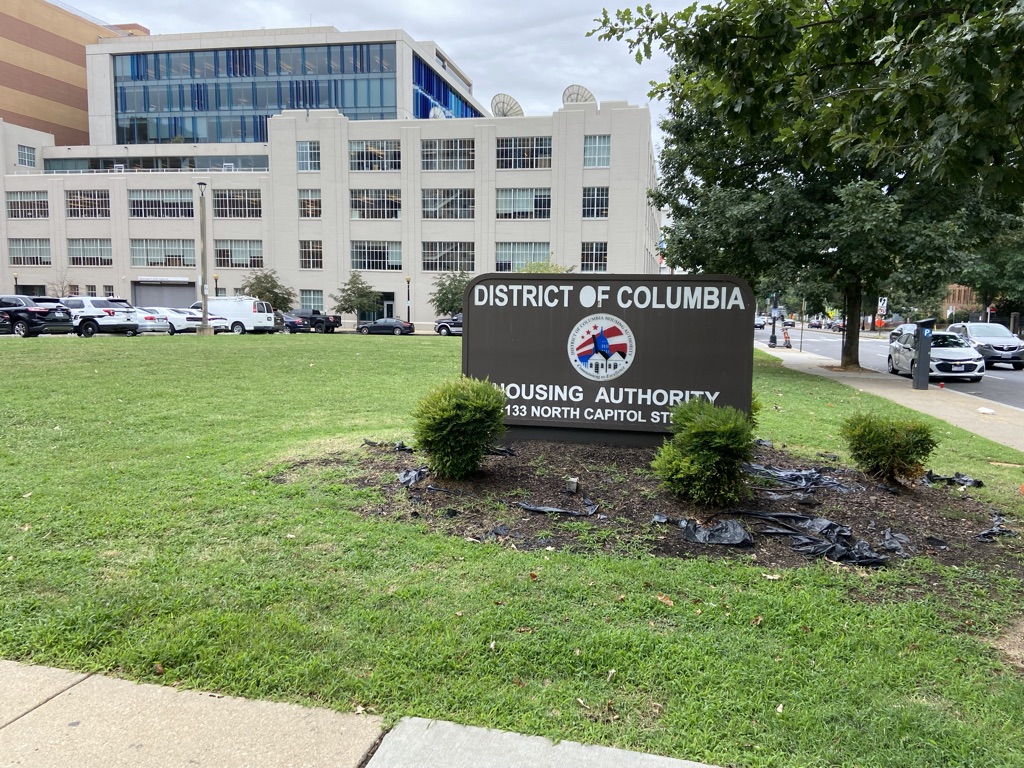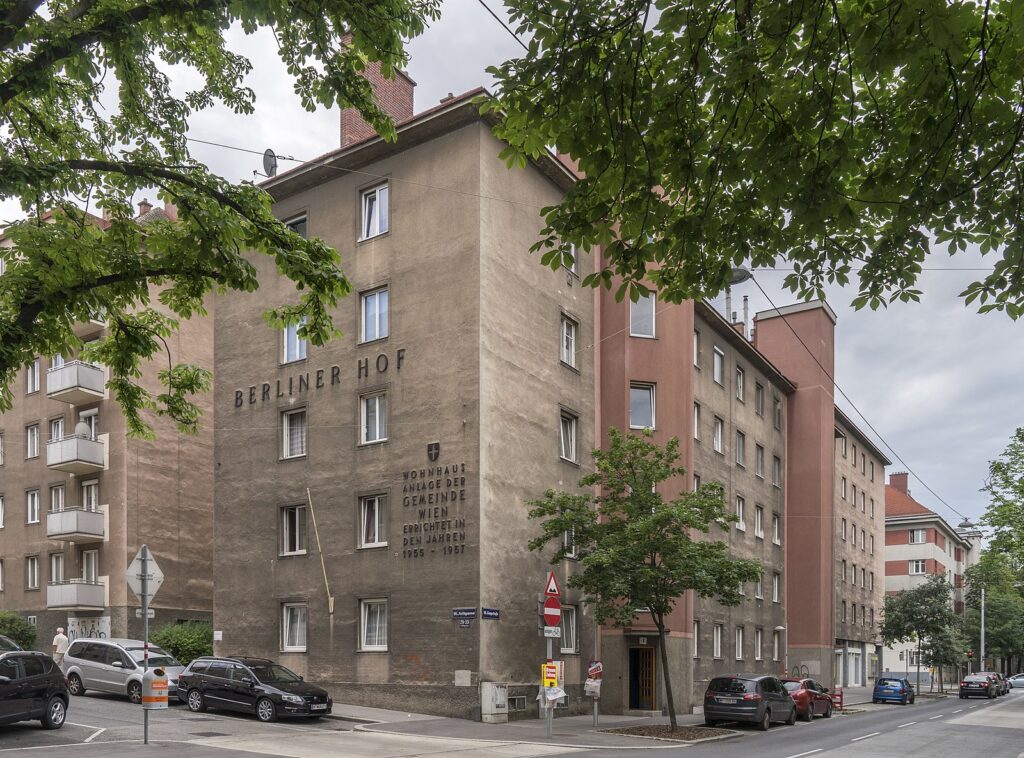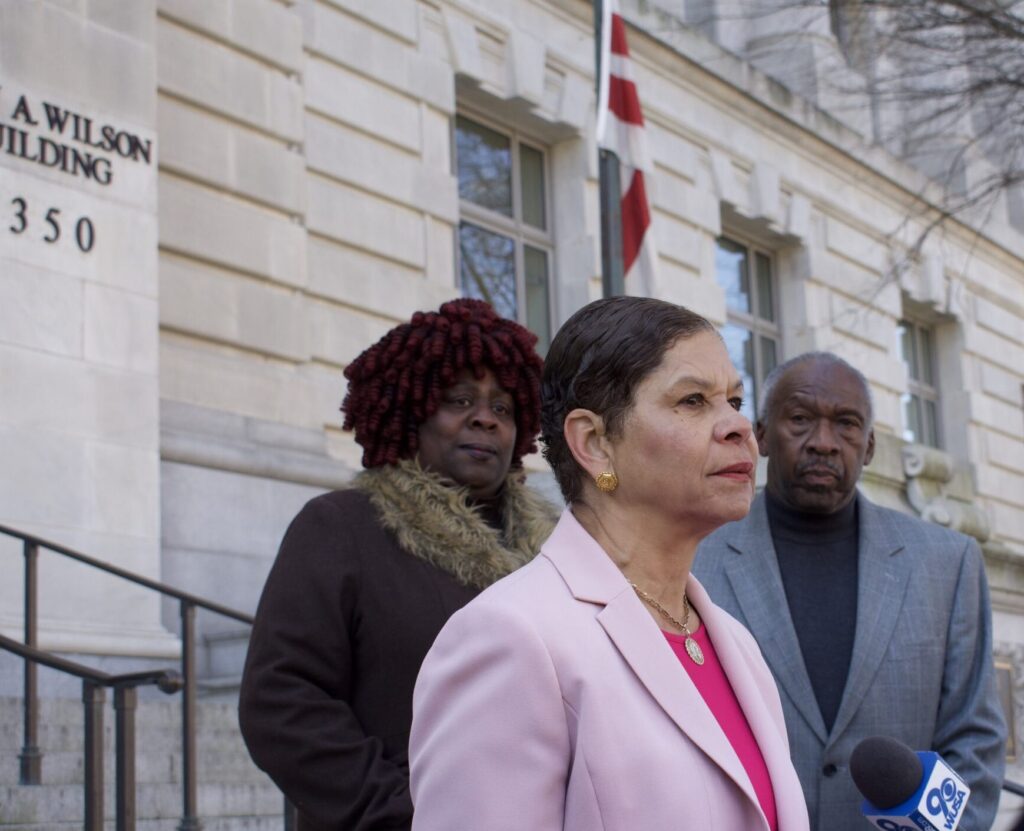More than 100 people gathered at the Benning Terrace football field on Saturday, Nov. 6, for a conversation with D.C. Housing Authority (DCHA) Director Brenda Donald, organized by the Washington Interfaith Network (WIN). Members of the advocacy group joined residents of the public community to bring a number of demands before the new DCHA director.
“Director Donald has been kind enough to meet with us and set benchmarks, but our ultimate goal is that Benning Terrace becomes a model community for public housing, with beautiful rental units, beautiful homes available for rental and for purchase,” said Rev. William H. Lamar IV, a WIN member and pastor of Metropolitan African Methodist Episcopal Church. “And that will help to transform the city and the nation.”
A 2018 assessment commissioned by DCHA estimated more than $33 million was needed for Benning Terrace — more than $120,000 per unit — along with a $3 million annual cost to keep up with it. The property, built in 1958, includes 274 apartments across three buildings and 98 townhouses of varying sizes. According to DCHA, “life and safety hazards” at the property include missing or non-functioning smoke and carbon monoxide detectors, widespread pest infestation, lead paint, and deteriorating electrical fixtures.
During the event, Donald outlined $17 million for repairs that she acknowledged was only a start. “Meanwhile, we’re going to be responsive. We’re going to be respectful to our residents, and to make sure that they can live in a healthy and safe environment,” Donald said in an interview. “Benning Terrace is a large community that clearly has been, I don’t want to say ‘neglected,’ but has a lot of needs, you know, structural needs.”
In addition to highlighting their concerns over housing conditions, residents who spoke stressed their desire to continue to live in the community and be a part of its redevelopment.
In a draft fiscal year 2022 plan, DCHA noted its intention to demolish or dispose of the 274 apartments, eyeing several ways to replace that capacity. A number of residents and their advocates are asking that the housing authority “build first,” meaning that they would be able to move into the new housing before being displaced from their old homes.
Brenda Perry, who has lived there 27 years and is a retired D.C. government employee, echoed Floyd’s sentiment. She attended to see change: “Change the lead that’s in our house, and mold … be heard, be seen.”
Brenda Perry, who has lived there 27 years and is a retired D.C. government employee, echoed Floyd’s sentiment. She attended to see change: “Change the lead that’s in our house, and mold … be heard, be seen, what things that bother us and need to be done.”
Donald was appointed to DCHA after former director Tyrone Garrett’s contract was not renewed. While she does not have a track record in housing, Donald is a long-time D.C. administrator. She wrote a monthly column for Street Sense in the mid-2000s when she served as deputy mayor for children, youth, families and elders for former Mayor Anthony Williams. She was tasked with coordinating Mayor Muriel Bowser’s initial foray into encampment cleanups as Bowser’s first deputy mayor for health and human services, but later shifted to head up the Child and Family Services agency, which she also led for former mayor and current Ward 7 Councilmember Vincent Gray.
As Donald settles in to her new role, the agency is wrestling with a spate of scandals. Board Chair Neil Albert resigned soon after The District Dig first reported alleged improper business decisions Albert made to favor a woman he lived with.The Office of the Inspector General is looking into this, hostile and retaliatory behavior by another DCHA commissioner, a conspiracy by for employees of a former contractor to steal housing voucher funds, and more.
Meanwhile, tackling billions of dollars in deferred maintenance and health and safety needs within DCHA’s portfolio of properties remains a monumental task. More funding or creative financing must still be identified to help current residents.
“I want to give the broader context. As I said [when speaking to the crowd,], public housing was a New Deal project for white people. And we had to press and fight. We were excluded. The only way it was passed is if Black people were excluded, Same with FHA (Fair Housing Administration). GI Bill,” Lamar, the pastor and WIN member, said. “You have, even today, tax dollars going from the poor to the wealthy. That’s why we have wealth inequality. It’s not that people are smart or brilliant. It’s not God’s blessing. It is theft. Tax dollars were stolen from Black people to build white property wealth. That’s the history of the suburbs, underwritten by federal tax dollars. What we are doing here is working to undo white supremacist policy.”







